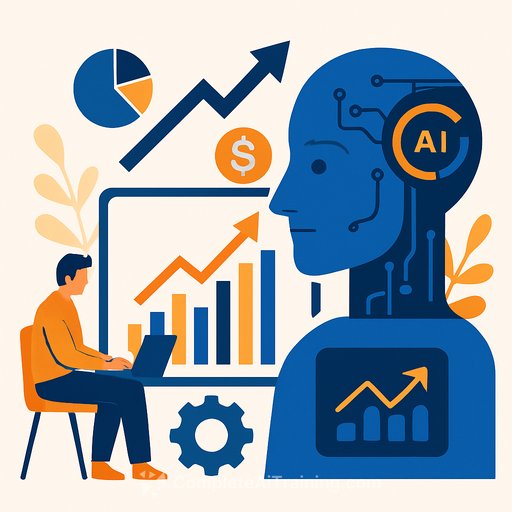How AI Tools Are Transforming Wealth and Asset Management: Insights from Indosuez and Credit Agricole
AI tools in France’s wealth management firms automate routine tasks, boosting efficiency while supporting managers’ decisions. Indosuez uses AI for portfolio management, reporting, and compliance.

How AI is Changing Wealth and Asset Management: Insights from France
Artificial intelligence (AI) tools are steadily becoming integral in wealth and asset management, moving beyond experimental phases into daily use. In France, firms like Indosuez Gestion and Indosuez Wealth Management—both part of Credit Agricole—are actively embedding AI solutions to improve efficiency and decision-making.
Since launching their AI program in 2019, these firms have focused on automating routine tasks to free up managers’ time. As Delphine Di Pizio-Tiger, CEO of Indosuez Gestion and global head of asset management for Indosuez Wealth Management, explains, technology and AI have been top priorities for the past five years and continue to be vital for adapting to market changes.
Innovation Labs and AI Personas
Credit Agricole supports innovation through hubs like Le Village by CA, which incubates startups and AI tools that eventually integrate into managers' workflows. Since 2020, Indosuez Wealth Management has operated its own “innovation lab,” focusing AI development on three key areas: portfolio management, reporting, and compliance.
Several AI tools have emerged with distinct roles or “personas.” For example, “AI for Alpha” assists in portfolio management, offering a risk-on/risk-off approach, while “Yseop” handles reporting. Regulatory compliance tools are also in development but have yet to receive specific names.
AI as a Co-Pilot for Asset Managers
The term “co-pilot” aptly describes AI’s supportive role in wealth management. These tools handle tasks like reviewing legal documents, opening accounts, preparing client presentations, adjusting asset allocations, and responding to queries. This support is crucial because advisors currently spend roughly 36% of their time directly with clients, while more than two hours per client hour is spent on administrative tasks.
Despite progress, a recent survey by SimCorp found that 75% of senior asset management leaders feel only “somewhat prepared” for AI integration. Experimentation continues to identify the most effective and credible AI applications.
Applying AI in Portfolio Management
AI helps portfolio managers optimize allocations by combining fundamental and quantitative data. Each month, a committee including heads of discretionary portfolio management teams worldwide uses AI tools to guide decisions. However, these tools don’t replace human judgment; they provide analysis that can adapt to various market conditions but can’t predict unexpected events like geopolitical moves or tariff changes.
For instance, when bank stocks showed high volatility recently, the firm chose to sell put options on banks—a strategic move supported by AI insights but ultimately decided by human experts.
Automated Reporting and Compliance Screening
Indosuez Gestion has developed a bespoke AI-powered reporting system through its innovation lab. This system generates thousands of personalized reports, automating commentary to explain portfolio managers’ rationale and next steps for each client. This automation significantly reduces manual workload while maintaining customization.
On the compliance front, an AI screening tool created with support from Le Village by CA monitors regulatory websites daily, starting with Luxembourg’s CSSF. It alerts the firm to regulatory changes, ensuring nothing is overlooked. According to Di Pizio-Tiger, this tool has been very well received by regulators, enhancing compliance confidence.
Looking Ahead
AI’s role in wealth and asset management continues to grow, with firms like Indosuez demonstrating practical ways to integrate it into everyday operations. For managers interested in exploring AI tools and learning how to implement them effectively, AI tools for finance offer valuable resources and training opportunities.
With ongoing development and careful application, AI can help managers focus more on strategic advising and client engagement while automating routine tasks.




